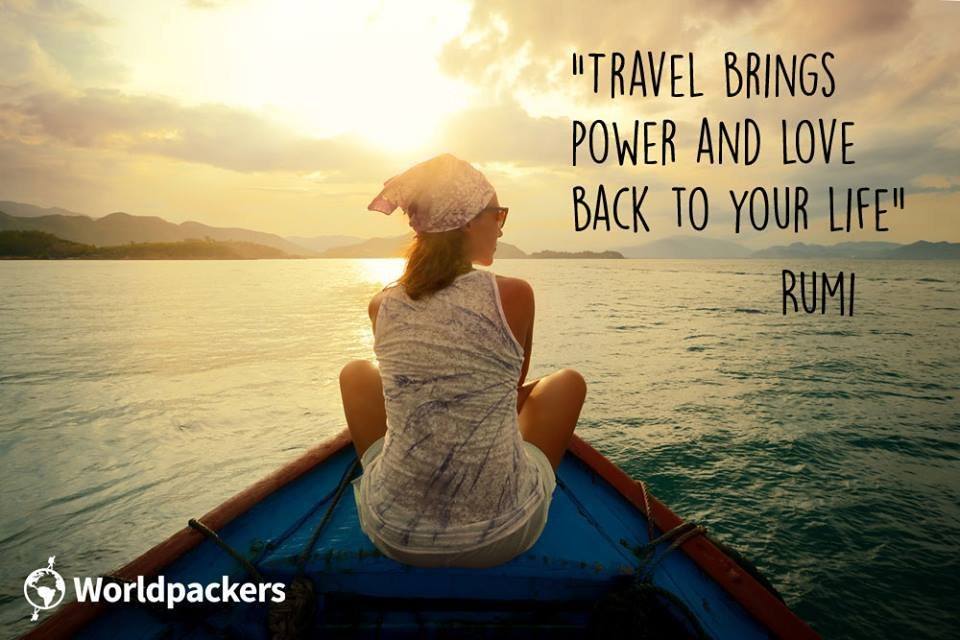The Broke Backpacker is supported by you. Clicking through our links may earn us a small affiliate commission, and that's what allows us to keep producing free content 🙂 Learn more.
Traditional Vietnamese tea serving requires that a tea set – specifically the pot and the cups – never be separated. To do so would be a tragedy as they are all considered a part of a family.
The idea of the family was something that I thought about a lot while volunteering in Vietnam. It’s only natural that I did – I was taken into a local’s home, treated like a sibling, and educated in the deeper cultures of Vietnam. I was with several other volunteers as well and they could also be described as my own brothers and sisters.
What is it like to volunteer in Vietnam? That was a question that I aimed to answer when I joined one such program with Worldpackers. I wanted to experience the country in a different way and to see with a fresh set eyes – ones that weren’t clouded by long nights partying in Hanoi.
I had no idea what to expect as a volunteer in Vietnam – it could be an epic adventure or perhaps a complete tragedy.
Either way, I was excited at the thought of traveling to a new place and maybe doing some good. God knows that the world doesn’t have enough of the latter.
Volunteering in Vietnam with Worldpackers
Full disclaimer: I was contacted by Worldpackers first and was enlisted by them to be a part of one of their partnered volunteer programs. The purpose of this relationship was for me, a writer and photographer, to gain valuable insight into what they can offer to prospective travelers.
Before coming into contact with Worldpackers, I had been a part of a couple of work exchange programs before, but with other companies. My experience with these services has varied from good to spectacular. From volunteering in Asia and Africa to Europe and America – you can do it anywhere.
I usually see work exchanges as opportunities to really dig deep into a foreign country. In particular, I had a very good time while doing an exchange in the Drakensberg of South Africa, which actually inspired me to write my first article ever!
Worldpackers and I batted around ideas about where to go for my work placement. We agreed that Southeast Asia was a good destination.
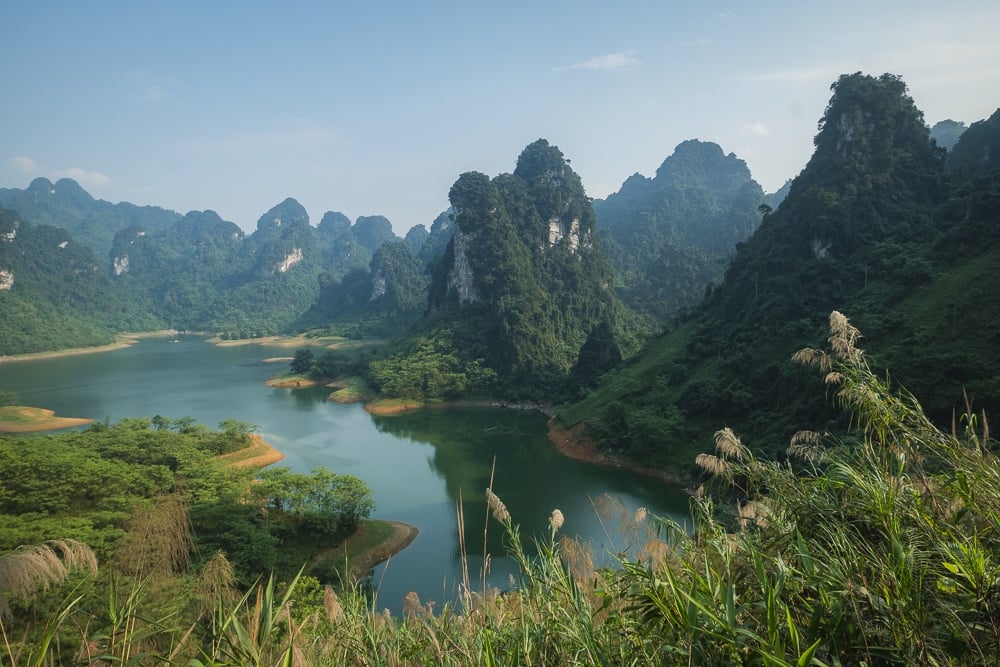
Photo: Roaming Ralph
The Broke Backpacker is supported by you. Clicking through our links may earn us a small affiliate commission, and that's what allows us to keep producing free content 🙂 Learn more.
I had already been to Thailand, Cambodia, and Malaysia before and, while I enjoyed these countries, I did not have much desire to return to them.
For me, there was only one choice for volunteering: Vietnam.
Vietnam had piqued my interest for a long time – it appeared relatively raw, unique, possessing of enormous history, and, best of all, absolutely gorgeous. I was filled with excitement at the thought of volunteering in Vietnam; the kind of excitement that one feels before an epic adventure.
Needless to say, I was in.
Psst, I’ve got news… we’ve launched an online community and you’re invited <3
“Broke but Backpacking” is a WhatsApp community full of passionate travellers who love to exchange tips, stories and inspiration. Connect with like-minded backpackers and be the first to hear about exclusive deals and giveaways designed just for the community.
Join the CrewWho are Worldpackers?
Worldpackers is an online service and community that seeks to connect travelers with hosts in foreign countries. Most of these relationships come in the form of work exchanges, like woofing, where said travels provide services in exchange for room-and-board accommodation.
At the outset, Worldpackers appears in a similar vein to other “voluntourism” companies like Workaway or Helpx. Having used these companies before, I can say comfortably that Worldpackers is different.
Thanks to a streamlined online interface and a superior set of values, Worldpackers promotes collaboration, responsibility, and timeless experiences. For digital nomads, who are often in search of new and enriching opportunities, Worldpackers is the perfect medium for developing or even starting careers.
With Worldpackers, travelers can use their own skills to help benefit a local community; skills that may be in short supply normally. Teaching English, providing IT support, boosting social media, and developing permaculture are just a few examples of what backpackers can do.
At the end of the day, Worldpackers is also a great way to travel cheaply as many expenses will be covered in exchange for their assistance. Not every program may be totally free for the participant though, but well get into the nature of this later.
For a more in-depth look at what this company can offer to volunteers traveling abroad, be sure to check out our in-depth review of Worldpackers here.
Vietnamese Lifestyle – Initial Impressions
Vietnam conjures up a myriad of fantastic images – of gravity-defying rice terraces, of surreal mountains, lush jungles, and bustling cities. Many people remark that backpacking in Vietnam was their absolute favorite; a statement that I was eager to test out for myself.
But before starting my volunteer program in Northern Vietnam, I would spend a day exploring the capital city and my point of entry, Hanoi.
Hanoi’s many neighborhoods is a labyrinth of alleyways, aging palaces, and old railway lines. It is an excellent starting point for anyone starting out in SE Asia as it is interesting, exciting, and quite fun.
Over the next 24 hours, I would get a crash course in the culture of Vietnam. I ate at one of the ubiquitous plastic-chair street vendors, paroused Beer Street, and saw a local attraction or two*.
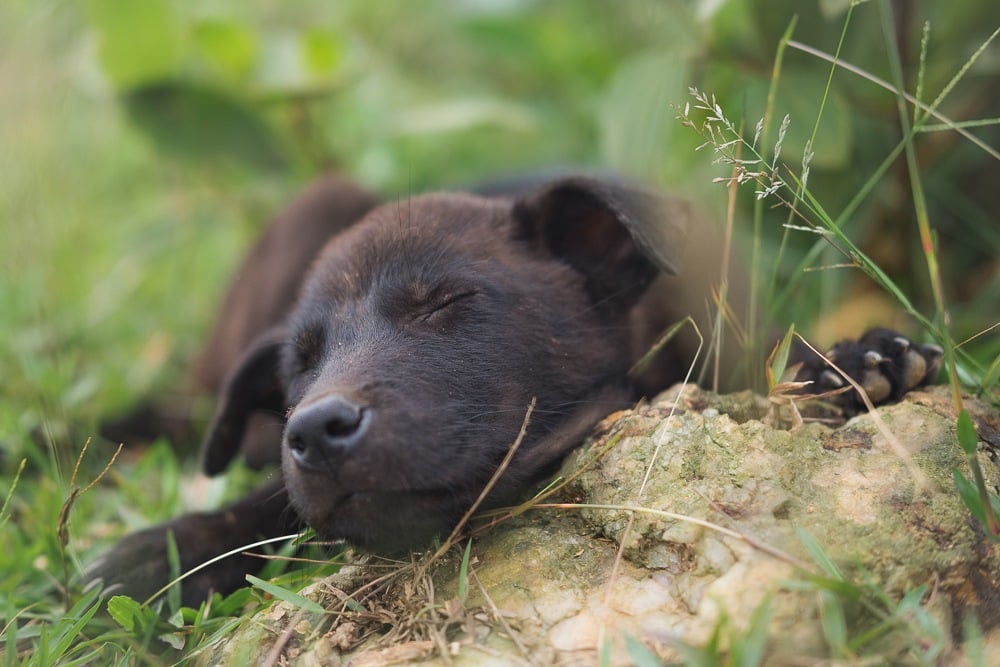
Photo: Roaming Ralph
My initial impressions of Vietnam were very good. Contrary to the urban mess that it’s usually portrayed as, Hanoi was actually quite clean. (I saw someone sweeping the highway for God’s sake, which has to be one of the most Herculean tasks in existence.)
That being said, the motorbikes were in full force and whipped through the city like a fullmetal hurricane. The heat was also oppressive and temperatures were expected to exceed 40 degrees Celsius (with humidity, mind you).
Ready to escape to the mountains and away from the furnace of Hanoi, I was very eager to begin working in Vietnam as a foreigner.
* I wholeheartedly admit that I did not see enough of Hanoi to consider myself an expert. If you’d like a more comprehensive account of the city, then be sure to check out our Backpacking Hanoi Travel Guide for more tips on exploring the Vietnamese capital.
Arriving at My Volunteer Program in Vietnam
I chose to work in Vietnam’s northern province of Ha Giang. I will not lie that the stories I’d heard about the spectacular motorbike road trip in Ha Giang influenced my decision to work here.
As a volunteer for this specific program, my responsibilities would be as follows:
- Teaching English to Vietnamese Children and Adults.
- Learning and assisting in the process of making local tea.
- Helping with social media and future endeavors.
After an uneventful 6-hour bus ride from Hanoi, I was dropped off on the side of the road somewhere in the middle of nowhere. I was to wait for Mr. Shan, my host. Since it was dark out and I was a bit hungry, I figured my time would be best spent drinking a beer at a local karaoke bar.
About 15 minutes later, I was greeted by the first of many Vietnamese students that I would be helping out. They were in the middle of class – at 8 pm in the evening* – but wanted to make sure I was taken care of.
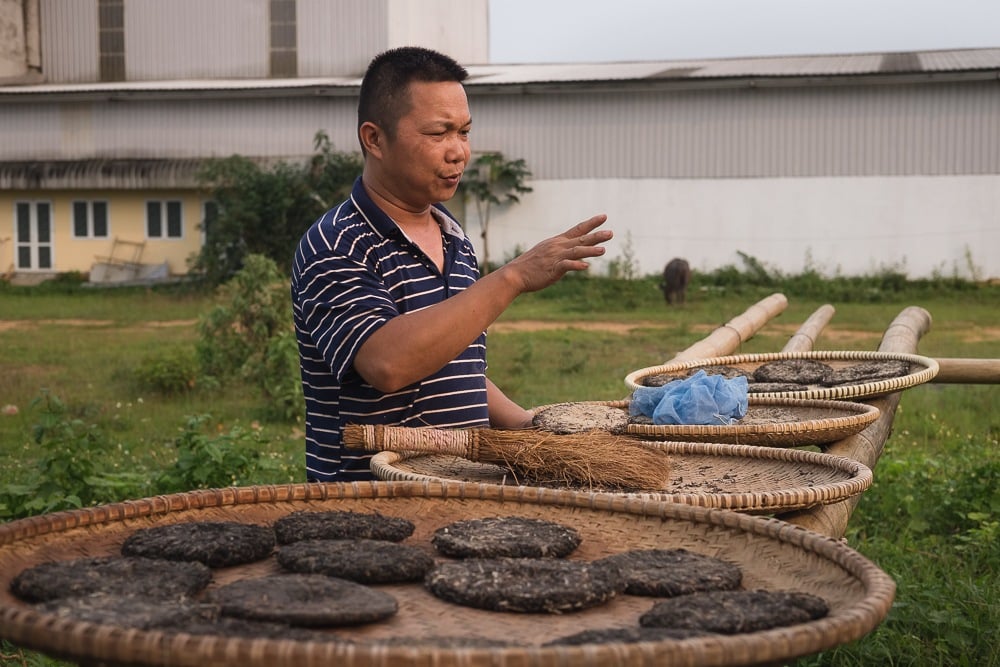
Photo: Roaming Ralph
The facility where I would be staying was quite large – 3 stories high with a conference area, a cavernous kitchen, and several dwellings for travelers and students. The building was also shared with a local corn wine distiller and his vats were visible from the top floors.
I eventually met Mr. Shan himself, who was a gentle soul. Aside from handling a grassroots tea operation he also taught children on the weekends. It was obvious why he needed help with so much going on.
I was given a brief overview of the program’s schedule before Mr. Shan relented that he had to return to work. I wasn’t upset too much as I’d had a long day as well and was ready to crash.
*The young students actually slept at the homestay on the weekends, which made the premises feel like a slumber party at times.
A Day in the Life of a Vietnam Volunteer
There were many roles that volunteers played on the tea plantation. We were assistants, students, laborers, and, crucially, vessels of knowledge for other Western tourists. While we were asked to take part in a series of crucial tasks, like the ones I mentioned before, we were also given a great deal of freedom to do what we wanted.
Mornings were either languid or productive depending on how motivated the individual was. Some took to working in Vietnam as a foreigner seriously and decided to help out on the farm; grinding corn for the pigs, picking vegetables from the garden, and other such dirty tasks. Others decided to catch on their sleep and were totally allowed to do so.
After a spartan breakfast that usually consisted of leftover dinner or instant noodles (I insisted on buying fruit) and a cup of coffee, the day usually started.
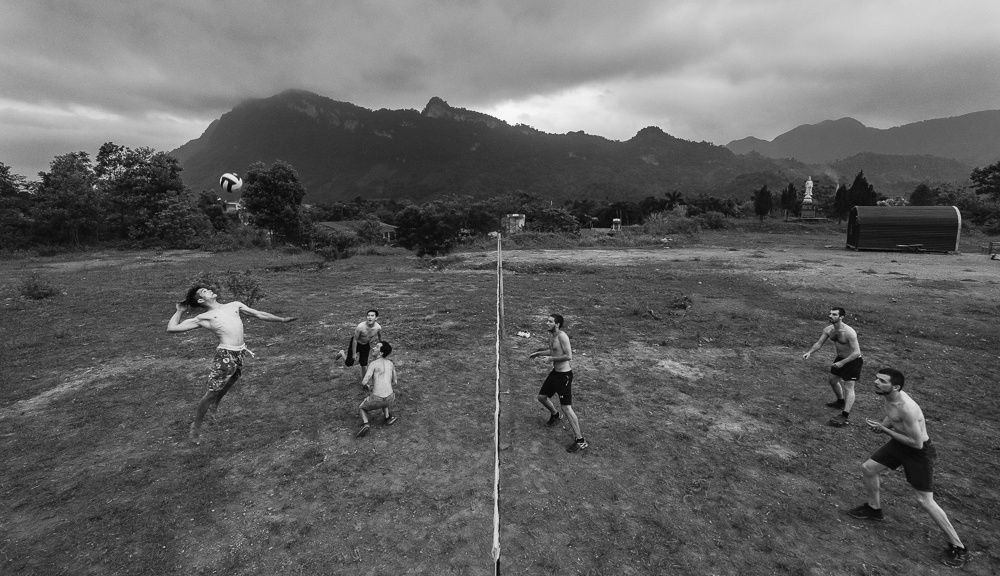
Photo: Roaming Ralph
Volunteer tasks depended on the day of the week:
- Wednesday-Friday afternoons were dedicated to learning about tea and its creation.
- In the evening of the same days, volunteers would teach English to Vietnamese adults.
- The weekends were dedicated to helping children and collaborating with Mr. Shen on social media.
The schedule was not very demanding. Between the many daily lulls and the two full days (Monday, Tuesday) that we had off, there was plenty of leisure time. If anything, the days were long because they felt empty at times.
Enthusiastic volunteers kept themselves busy with self-started projects – a group of Frenchmen amazingly built a volleyball court in the fields and a Polish traveler was involved with various startups with the local community.
Volunteers that were not able to come up with their own tasks generally struggled and most didn’t last more than a week. Apparently, some were unable to cope with the lackadaisical lifestyle in Vietnam.
Meeting Fellow Travelers
Volunteering was more than just a means to become culturally immersed; it was also a way to meet fellow people working and traveling in Vietnam. Those who are volunteers in Vietnam are generally of an equal mindset and the feeling of camaraderie can be intense.
Volunteers worked together, ate together, and slept together (in more ways than one sometimes). Bonds were bound to form and many would go on to travel to other regions of Vietnam together, solidifying their relationships even further.
I was extremely lucky to have been with a single group for most of my volunteer experience in Vietnam. (I’ve heard of programs where volunteers come and go on a daily basis, which is disheartening.) Over the course of several weeks, I had the pleasure of getting to know a young group of Frenchmen, a quirky Quebecian girl, a passionate Polish man, two women from Madrid, and a Basque who cackled when he laughed (thus I called him El Cabra or “The Goat.”)
In the beginning, we were just people living and working in Vietnam, looking for our own ways to experience the country and maybe save a buck or two. By the end, we were siblings.
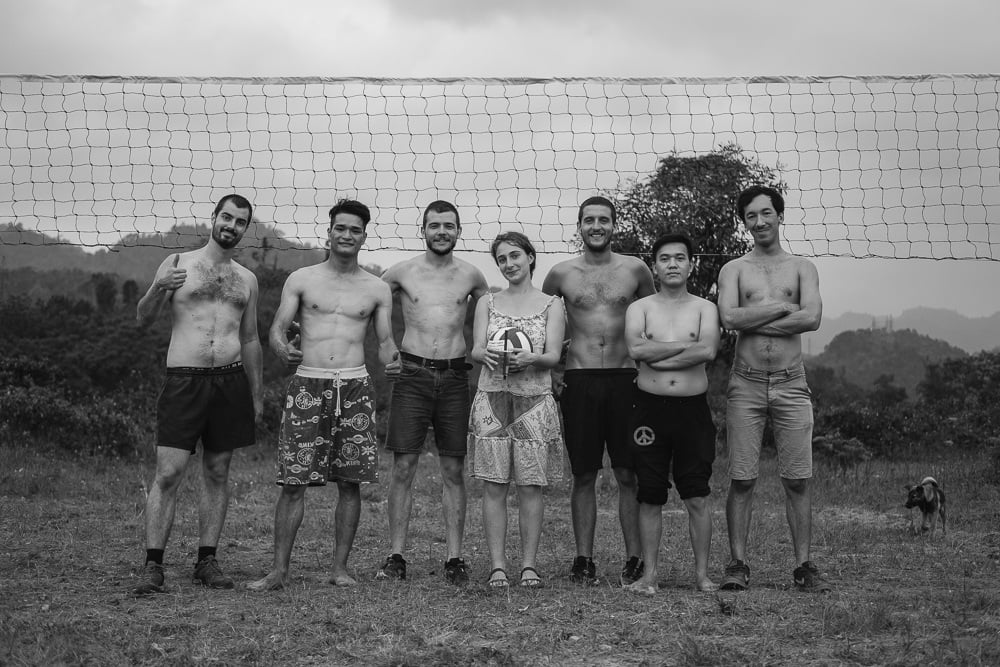
Photo: Roaming Ralph
During the day, we would go on various adventures – picking tea leaves in the mountains or maybe discovering a hidden waterfall. At night, we sat down together to play cards, drink beers, and talk about whatever came to mind (mostly Game of Thrones.)
If there was a singular moment that solidified anyone’s relationship, it was our trip to Mr. Shen’s home – Na Hang. For two days, we motorbiked around villages untouched by tourism, had a gorgeous lake all to ourselves, and drank enough corn wine collectively to kill an elephant.
Voluntourism doesn’t have to be all seriousness and “save the world” attitudes. Sometimes it’s just as simple as being with like-minded travelers who want to be a part of something different, something more enriching than the usual backpacker mishaps.
Vietnamese Culture – Studying the Art of Tea
Ultimately, our program centered around tea. It would be a major focal point of our immersion and something that we became very involved in.
Tea is very important to the indigenous people in Vietnam. It is a gift given to guests, a sign of social standing, and an arc carrying the cultural memory of generations past. There are few aspects of Vietnamese culture more foundational than the simple act of making and drinking tea.
Three days of the week were dedicated to learning about tea. Mr. Shen regularly held tea presentations, where he would demonstrate the proper ways of serving it.
Mr. Shen was passionate about tea. He knew a great deal about the process of making it and made quite a bit of his own.
More than a connoisseur though, Mr. Shen was a businessman and an activist. He sold tea to local vendors but insisted that the production of tea be kept in the hands of the locals (as opposed to big corporations) as a means of empowering the community. He employed local youths and taught them the methods so that they could one day support themselves and carry on the torch.
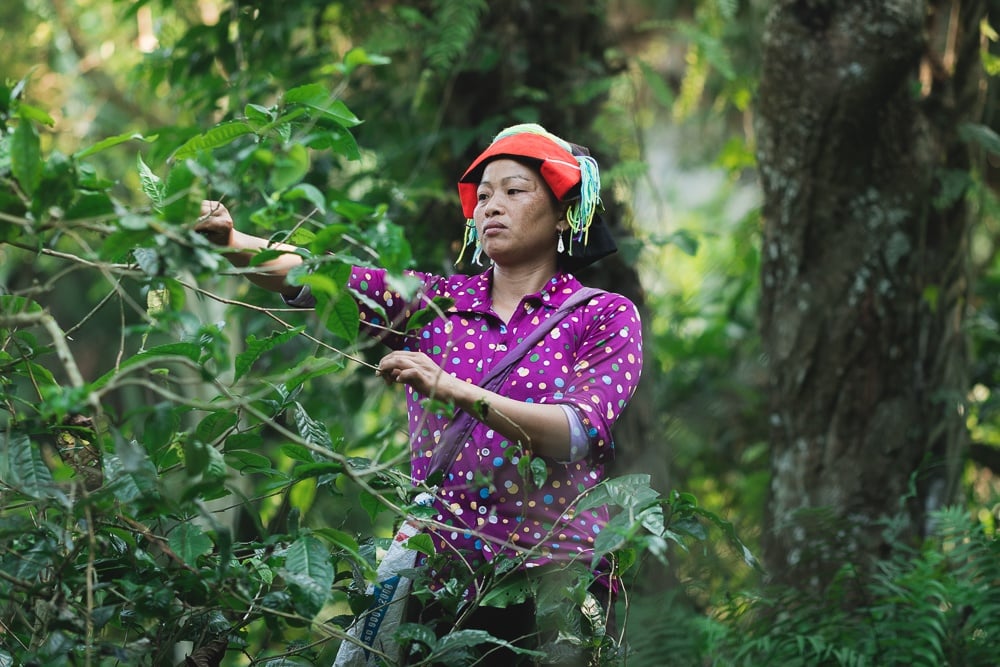
Photo: Roaming Ralph
Mr. Shen’s enterprise was what I’d call a grassroots movement. Though I cannot confirm this, I imagine that he received little in the way of support from higher powers and, as such, had to do everything on his own.
But like any good grassroots program, he knew that the power of social media and conversation were powerful tools. Success hinged upon people knowing about local tea producers.
Thus, volunteers were a useful means of carrying this message. They could expose the tea plantations to a Western audience and potentially raise awareness. For such a business, having the support of foreign travelers was imperative and could mean all the difference.
Teaching English in Vietnam
Wherever there is an English speaker in Vietnam, there is a Vietnamese person looking to practice their own English. To be able to speak English means more opportunities, easier interactions with tourists, and more money.
As most volunteers in Vietnam speak English fluently or proficiently, they automatically have value to Vietnamese people. Even if the volunteers are not professional teachers, the mere chance to learn a word or two from English speakers could be a huge benefit for Vietnamese people.
We were tasked with teaching English to Vietnamese natives and fostering their skills. Three days per week, we taught adults and on the weekends we taught children. Both presented different challenges.
The adults had the least amount of English knowledge and were limited to basic, practical expressions. The classes were very informal (frustratingly so sometimes) and lacked a lot of structure. Volunteers just stood in front of a whiteboard for two hours and did there best to teach with little, if any notes from previous volunteers.
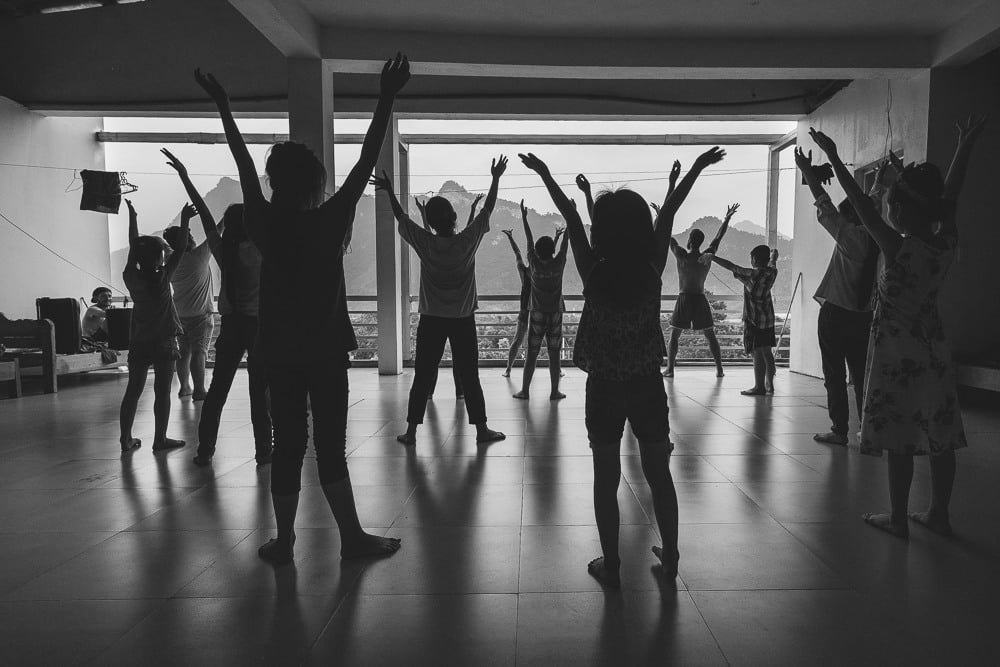
Photo: Roaming Ralph
But the adults were motivated and obviously there for a reason. The looks of exhaustion in their faces was a clear indicator that they were really trying hard to learn English so that their lives might be a little easier.
The children were a different story. Their English was remarkable and most could carry on a regular conversation with the volunteers.
Many were fuckin’ smart as well. On one occasion, the children questioned the Frenchmen about the nature of Notre Dame’s burning (*) and whether it was a conspiracy or not. The Frenchmen were flabbergasted, to say the least.
But the children lacked attention and most just wanted to play on their phones. Clearly, horsing around was a global phenomenon.
If I’ve piqued your interest, then read more about teaching English abroad, and how to create a fulfilling work and travel lifestyle!
Realities of Living in Vietnam
When you become truly immersed in a strange land, you learn about certain truths that weren’t obvious before. In doing so, you no longer have the benefit, or option really, of traveling through a country blissfully unaware as most tourists do.
Life in Vietnam is hard. The weather can be cruel sometimes and the heat can actually be fatal, particularly to the young, old, and domestic animals. Runaway industrialization is causing massive changes for Vietnamese residents both in where they live and in matters of climate change. Many people in Vietnam still live in relative poverty (though it’s getting better).
In northern Vietnam, where tribal thinking still dominates the social landscape, people are often stuck in archaic ways of life. Children are not given opportunities to go to school and instead are stuck working in the fields, thus trapping them in a perpetual cycle with little means to escape.
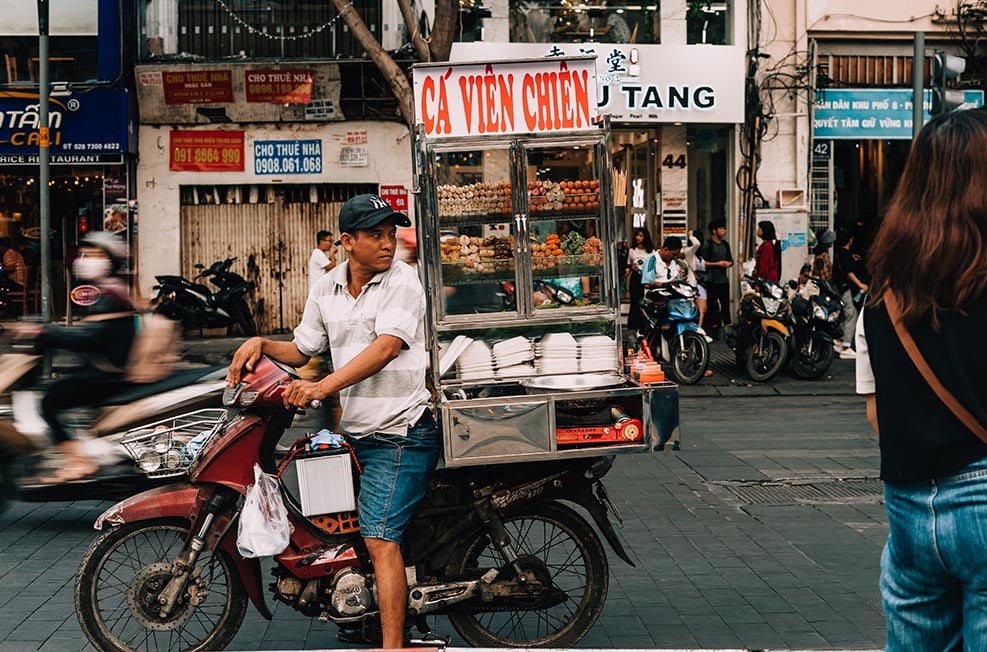
Image: Nic Hilditch-Short
There are many natives working in Vietnam in the hope of creating something new. Young people are attempting to bridge the gap between the old and the new without sacrificing their heritage and pride in the process.
They are opening homestays to support themselves and provide more authentic lodging to tourists; creating programs where the youth can apprentice under elders in an effort to preserve cultural identities; helping to teach English so that their compatriots are better equipped for a globalized world.
Volunteers can help these efforts in many ways:
- By teaching English in Vietnam so that the locals can be more successful in business.
- By assisting the administration of volunteer programs thus promoting more responsible tourism.
- Through sharing their experiences and portraying Vietnam in a positive light.
- By supporting the local community either through funding or work exchange.
- In ways more ways that this article has not considered yet.
Why Volunteer in Vietnam
Vietnam is beautiful in more ways than I can count. The mountains of the north are some of the most spectacular that I’ve ever seen in my life (and I’ve been to a fair share of mountains). The people are among the warmest, most welcoming, and genuine that I’ve ever met. The wonderful children, in particular, are blinding rays of sunshine in my eyes.
The best way to travel to Vietnam is not on a 2-week holiday or as part of some Contiki tour. The real and earnest way to travel is by getting involved volunteering with the local communities and by working with/learning from them.
By being a part of some sort of cultural immersion, you will be creating a dialogue with the Vietnamese people, which then leads to positive changes. Not only will you be part of something unique and authentic, but you will also be directly supporting the natives.
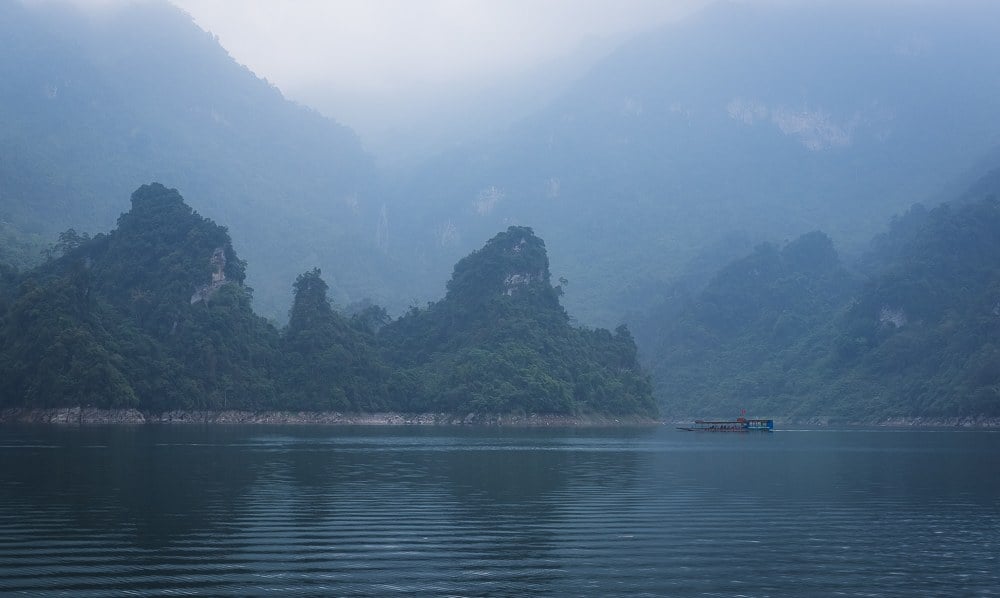
Photo: Roaming Ralph
Volunteer programs are a great way to travel responsibly in Vietnam, so long as find the right one. Volunteering in Vietnam for free room and board, like in a local backpacker hostel, could be an attractive option for some. But if they’re just using the opportunity to get shit faced cheaply and are taking work away from some local, then they’re just being a dick.
It’s very important that you find the right program – one that is both beneficial to you and the local community. And sorting through these programs is made easier using services like Worldpackers.
Worldpackers allows you to connect with hosts in various countries and to find the best fit for yourself. You can inquire about the nature of the program, discuss future possibilities, and even collaborate with fellow travelers. That’s all you really need to find the right experience for yourself; read more about finding the right volunteering opportunity through Worldpackers and get a $10 dollar discount if you’re still not convinced.
Traveling Cheaply or Volunteering in Vietnam for Free?
The subject of using volunteer programs as a means of traveling cheaply is worth broaching because so many people do it.
Many volunteer experiences will cover your living expenses in exchange for working a certain amount. For many broke backpackers, free room and board is an irresistible draw.
But there is a fine line between working for your stay and just being a leech. Many people abuse these volunteer programs and either don’t put the work in or expect too much from the hosts. Acting in such a way to me is a mortal sin in the backpacking bible and is akin to the ugliness of begpacking or stealing from hostel dorms.
Volunteer programs are not there for backpackers to take advantage of. The hosts are not your mommy and daddy and are not charged with feeding childish appetites.
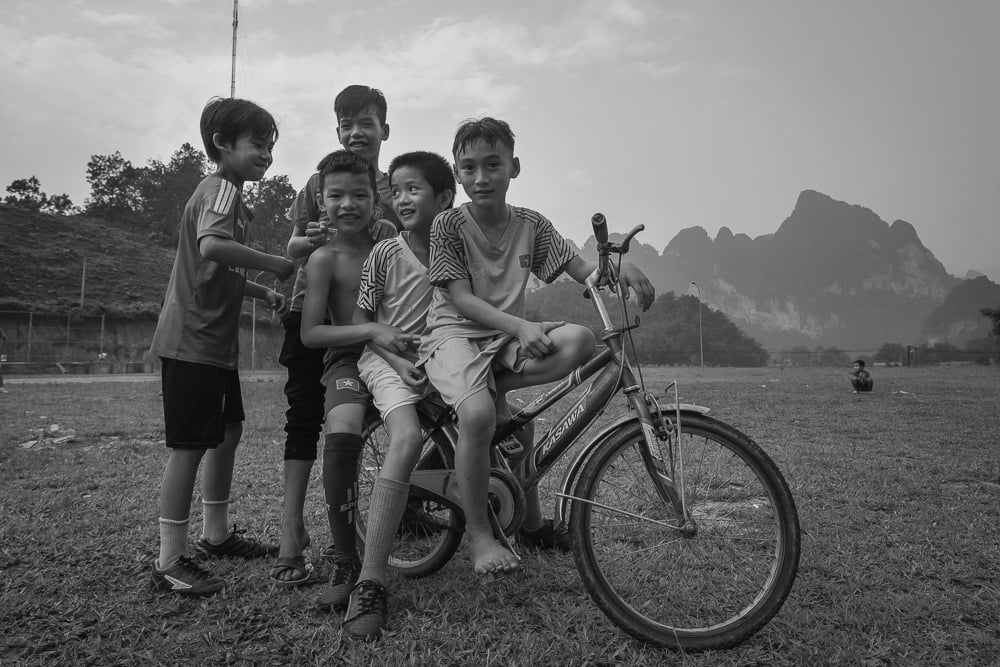
Photo: Roaming Ralph
Volunteering is an opportunity for you to provide assistance to a community and, in exchange, you will be treated with cheaper costs of living. These lower expenses should be considered an added bonus, and I hesitate to suggest to people to volunteer only for the sake of saving money.
This leads me to my next point which is that some hosts will actually ask you to pay a bit for your lodging. At first, paying for a volunteer program may seem completely counterintuitive and a real deal-breaker, but this request is often for a good reason.
First off, many people do not participate in a volunteer program long enough to really cause a lasting effect. As such, a little bit of cash helps to provide extra support to the community.
Secondly, that cash does go towards a good cause. To skimp on paying, which is usually a minor amount, for the sake of extending a backpacking trip is ridiculous considering that the money may go further in the hands of the local community.
The Rise of Responsible Tourism
Traveling the world is no longer just about taking a holiday or some vacation time. Globalization has made the planet a much smaller place and we now, more than ever, can make an impact on people abroad.
Responsible tourism is a new type of travel that seeks to create harmony between the tourist and the local. Through conversation, collaboration, and awareness, travelers can visit new and wonderful destinations and have the option to maybe leave them better places.
Gone are the days where holidaymakers just blew through town and did nothing but get pissed and create waste for the locals. This type of tourism has little merit anymore and frankly many regions can’t afford indulging it either.
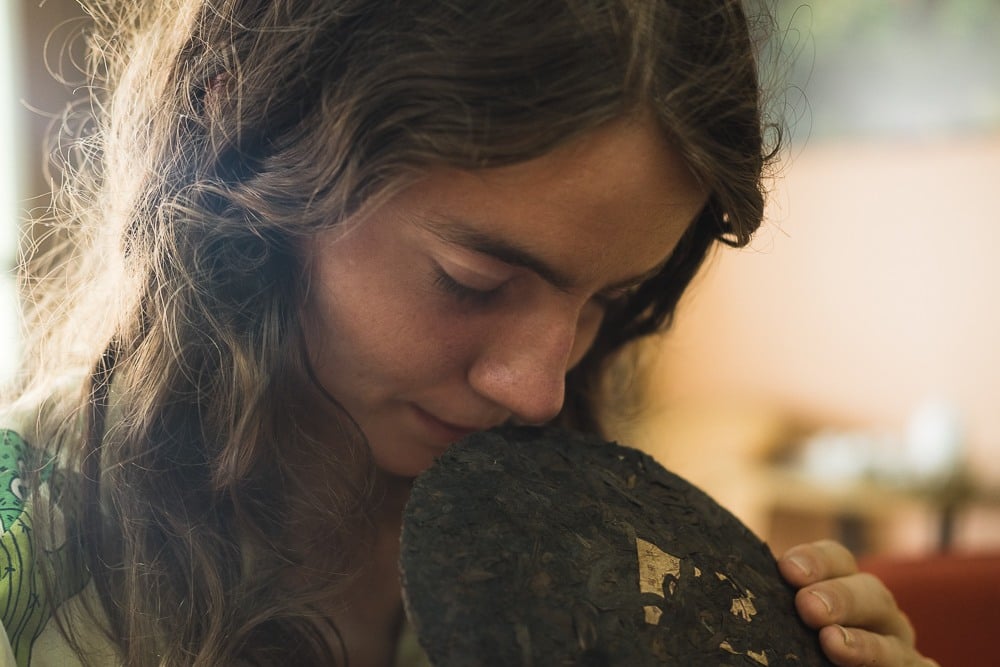
Photo: Roaming Ralph
Responsible tourism comes in many forms:
- People can travel and teach English, thus empowering future generations and themselves.
- Or be a part of garbage clean-ups and preserve some of the most beautiful places in the world.
- Simply sleeping at a local homestay is a way to help support local families who would struggle otherwise.
These are just a couple of examples of how you can be a part of responsible tourism. As the movement continues to grow (it’s still quite young), even more and more avenues will present themselves.
Responsible tourism is NOT working for free as an unskilled laborer as this is how locals lose their jobs. If you plan on doing grunt work, make sure that it’s truly suitable and that someone else isn’t being fired in the process.
Is Volunteering in Vietnam (or anywhere) for you?
There are several pros and cons to working and traveling as a volunteer with a service like Worldpackers.
Volunteering with Worldpackers IS for people who…
- Belief in the merits of responsible tourism.
- Want to give back to local communities.
- Are looking for a way to travel cheaply.
- Want to see some alternative parts of the country of their choice.
- Have the time and patience to be a participant.
- Are motivated and are willing to take initiative with their programs.
- Don’t mind working a bit on their vacation.
Volunteering with Worldpackers IS NOT for people who…
- Are looking for ways to take advantage of the locals and save more money than necessary.
- Want to have zero responsibilities.
- Need luxury, pampering, or general babying.
- Need to be ordered or given explicit directions (more on this in a moment).
- Are just going to be passing through for a few days and need a place to crash.
There is one point that I want to bring up when using programs like Worldpackers as it may affect people’s decisions.
Worldpackers is a way to travel responsibly and to limit negative impacts on the local community. It is not a way to completely change the system.
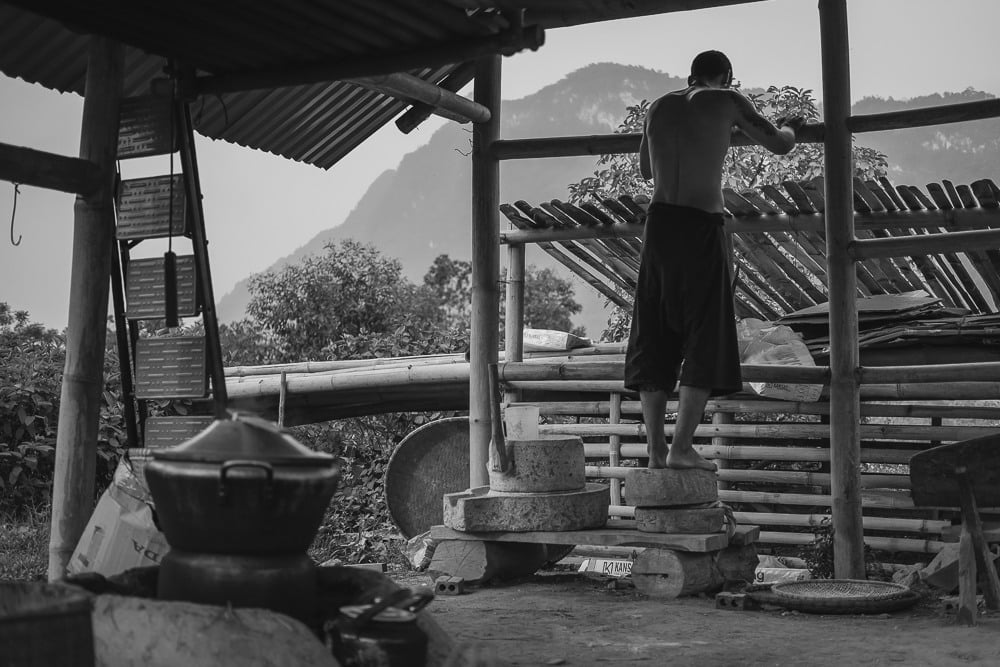
Photo: Roaming Ralph
Some people expect that they are going to be saving people’s lives and causing shockwaves of social change immediately when volunteering like this. In reality, major changes usually come from major entities, like NGOs and large volunteering organizations. If you wanted to really be a freedom fighter and to get totally immersed in a culture, then you should probably reach out to companies like these.
If you want to go backpacking around the world or on holiday and to have a positive impact – regardless of the degree – on the local community, then volunteering with Worldpackers is a great idea.
My Favorite Part about the Worldpacker Program
The thing that I loved most about living and working in Vietnam was the extra dimension it gave my trip. By staying at a homestay and collaborating with Vietnamese people, I was given a unique and engrossing perspective of the country. I actually learned something on my trip that wasn’t trivial and felt like I could do something to help.
By becoming involved with the community that I was visiting in Vietnam, as opposed just blowing through like a fart in the wind, I actually enjoyed myself more. I was more aware, more engaged, and, ultimately, more connected with my trip. The fact that I had Vietnamese people guiding me around and showing hidden gems, like secret waterfalls and restaurants, was the cherry top.
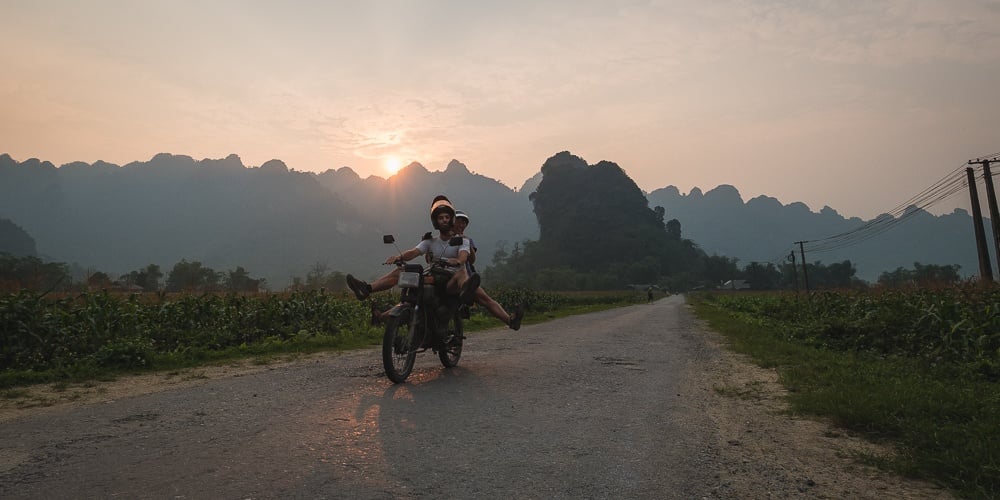
Photo: Roaming Ralph
The bonds I formed with the fellow volunteers in Vietnam were also stronger than usual. Many of us shared the same beliefs, the same thoughts, and the same experiences. We were all in it together and together formed a gestalt. We created a new trip that was better and more exciting than we could have imagined.
I must also thank Worldpackers for allowing me the opportunity to be a part of such a wonderful moment. Without them, I would’ve never have found this particular volunteer work in Vietnam and it hurts to think about what would’ve been if I’d never been a part of this.
If you’d like to learn more about the specific program that I joined in Vietnam, be sure to check the listing over at Worldpackers! Go ahead and send Mr. Shan a message and ask about helping 🙂
Final Thoughts on Working and Traveling in Vietnam
Overall, my time volunteering in Vietnam was extremely enjoyable. I met lots of great people, went on some adventures, and learned about aspects of the country that would otherwise be hidden from me.
To be a part of something bigger than my journey and to have the opportunity to travel in such a different way was a very enriching experience. I felt like I not only visited Vietnam but was actually a part of it, which is a feeling that I don’t get very often from countries.
Responsible tourism, or any form of traveling that requires one to engage with the natives, is by far the superior choice. The country will be presented to you in ways that friends, family, or the all-powerful internet can never really explain. That in itself makes the trip worthwhile.
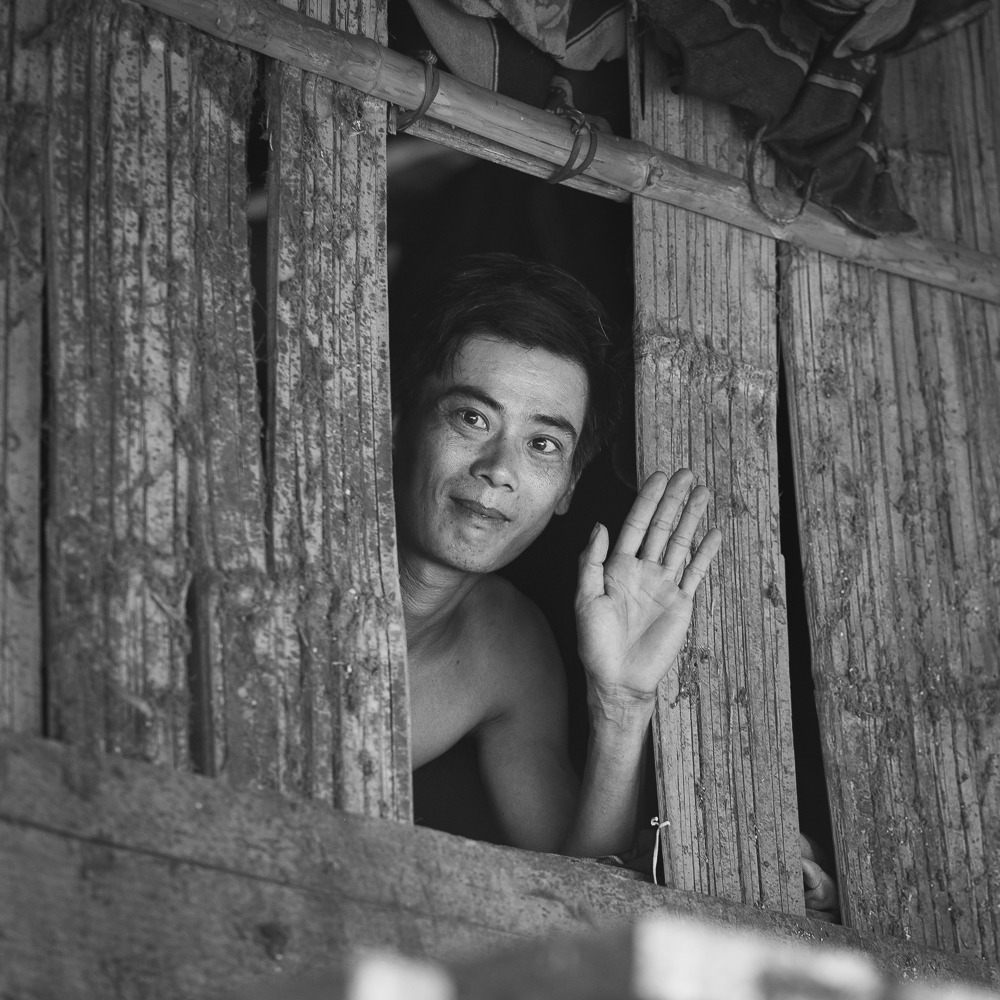
Photo: Roaming Ralph
The people that I met on my trip were special. Even though we all had to face the inevitable and parts ways eventually, I think that there will be a strong possibility of meeting again in the future. Though our proverbial tea set has been split apart, we will always find ourselves home in a pot of fresh macha.
Special thanks to everyone involved in this experience, including but not limited to:
- The volunteers
- The host
- The students
- The Vietnamese helpers
- And Worldpackers
Nothing would’ve been the same without y’all.
Use Our Worldpackers Promo Code!
Broke Backpacker readers get a special discount of $10 on their annual Worldpackers fee! Just use this discount code BROKEBACKPACKER and membership is discounted from $49 a year to $39.
Buy Us a Coffee!
A couple of you lovely readers suggested we set up a tip jar for direct support as an alternative to booking through our links, since we’ve decided to keep the site ad-free. So here it is!
You can now buy The Broke Backpacker a coffee. If you like and use our content to plan your trips, it’s a much appreciated way to show appreciation 🙂


